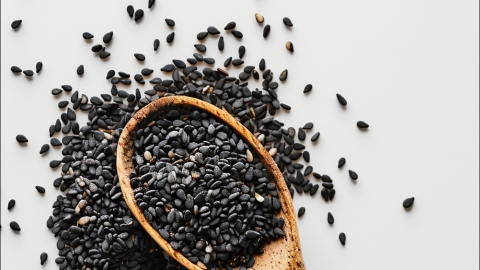Does black sesame help in children's development?
Generally, black sesame seeds can play a supportive role in children's development, but they should be consumed in moderation and cannot replace a diversified diet. The specific analysis is as follows:

Black sesame seeds are common food ingredients containing protein, unsaturated fatty acids, calcium, iron, zinc, and vitamin E. Protein serves as the foundational substance for children's growth and development, calcium supports bone and tooth development, and zinc helps promote appetite and growth hormone synthesis. These components play important roles in children's physical development. Consuming black sesame seeds in moderation can provide nutritional support as part of the diet. However, excessive consumption may increase the gastrointestinal burden due to their high oil content, potentially causing discomfort such as bloating and indigestion.
When feeding black sesame seeds to children, it is recommended to grind them into powder and add them to porridge, rice paste, or flour-based foods to facilitate digestion and absorption. Additionally, intake should be controlled, with a recommended daily amount of 5–10 grams to avoid affecting the consumption of other foods. In daily life, it is important to help children develop good eating habits and ensure a diverse diet, which is more conducive to promoting healthy development.








